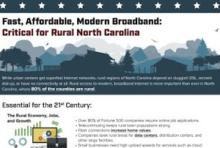A New Cooperative Model for Fiber to the Farm - Community Broadband Bits Podcast Episode 198

When we launched this podcast in 2012, we kicked it off with an interview from Minnesota's farm country, Sibley County. We were excited at their passion for making sure every farm was connected with high quality Internet access. After the project took a turn and became a brand new cooperative, we interviewed them again in 2014 for episode 99, but they hadn't finished financing. They broke ground 2015 and today we discuss the model and the new Institute for Local Self-Reliance (ILSR) case study that details how they built it. City of Winthrop Economic Development Authority Director Mark Erickson and Renville-area farmer Jake Rieke are both on the board of RS Fiber Cooperative and they join us to explain how their model works.
We at ILSR believe this model could work in much of rural America, in any community that can summon a fraction of the passion of the citizens from Sibley and Renville counties. Having watched this project for all the years it was being developed, I cannot express how impressed I am with their dedication. And because they own it, I'm thrilled to know that no one can take it away from them.
This show is 35 minutes long and can be played on this page or via Apple Podcasts or the tool of your choice using this feed.
Transcript below.
We want your feedback and suggestions for the show-please e-mail us or leave a comment below.
Listen to other episodes here or view all episodes in our index. See other podcasts from the Institute for Local Self-Reliance here.
Thanks to Kathleen Martin for the music, licensed using Creative Commons. The song is "Player vs. Player."


